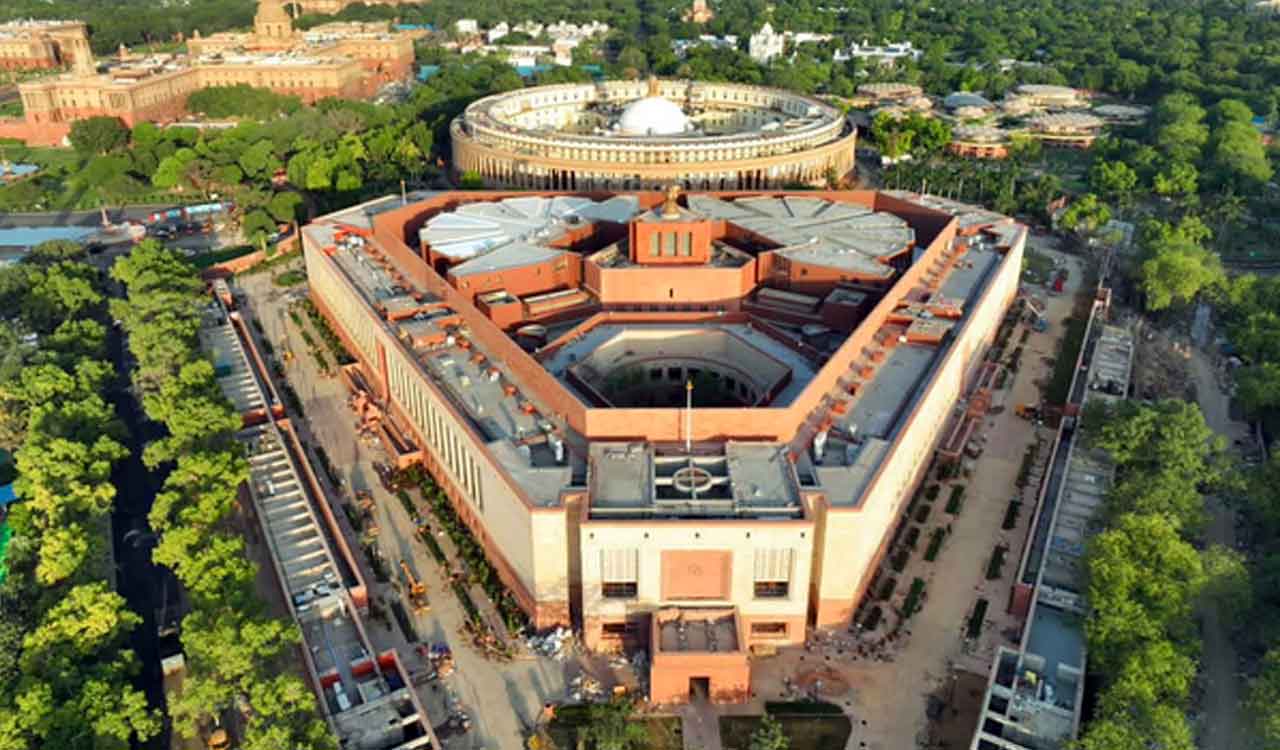TN Assembly’s passing resolution reflects the collective concerns of southern States over delimitation of LS constituencies in 2026
Published Date – 16 February 2024, 11:59 PM

Tamil Nadu Assembly’s resolution against the central government’s delimitation move, the first by any State, reflects the collective concerns of the southern States over the population-based delimitation of Lok Sabha constituencies in 2026. Several States, particularly in the South, argue, justifiably so, that such an exercise could lead to unequal representation in Parliament. It is bound to result in grave injustice to the southern States which have been able to control the population with a progressive set of policies over decades. The northern States that have ignored the Centre’s population control measures would benefit from delimitation. Post-delimitation, the total seats in the South are projected to come down to 103 from the existing 129, a prospect that could trigger mass protests and severe public resentment. In contrast, Bihar and Uttar Pradesh together will have a total of 222 MPs. According to a study, four northern states — Bihar Madhya Pradesh, Rajasthan, and Uttar Pradesh — would collectively gain 22 seats while four southern states of Telangana, Andhra Pradesh, Kerala, and Tamil Nadu would lose 17 seats. The delimitation is back in focus now with the NDA government linking the implementation of the Women’s Reservation with it. While moving the resolution in the Assembly, Tamil Nadu Chief Minister MK Stalin voiced fears that the delimitation could be a conspiracy to reduce the number of Parliament seats from southern States and chip away at their bargaining power. The key question that needs to be asked is why the South should be penalised for controlling population growth and concentrating on development.
The reports that the NDA government would take up the delimitation process if the BJP retains power in the upcoming general elections have caused legitimate concerns. It must be pointed out that southern States account for just 18% of the country’s population but contribute 35% to the Gross Domestic Product (GDP). It would be a travesty of justice if such progressive States were put at a disadvantage in the delimitation exercise. Already, there is a sense of injustice among the southern States in terms of devolution of central taxes. It is widely felt that the fundamental principle of fiscal federalism is increasingly coming under threat. The Centre must come up with a suitable mechanism to address these concerns and ensure regional balance in representation in Parliament. It is also time for all political parties in the South, cutting across party affiliations, to raise their voice against the injustice being done through the present method of delimitation which takes population into account while redrawing the borders of the constituencies. In the present circumstances, the delimitation, along with a smaller share of central funds to States on the basis of the population, can be unfair to southern States where the economic situation has improved dramatically since the turn of the 21st century.




